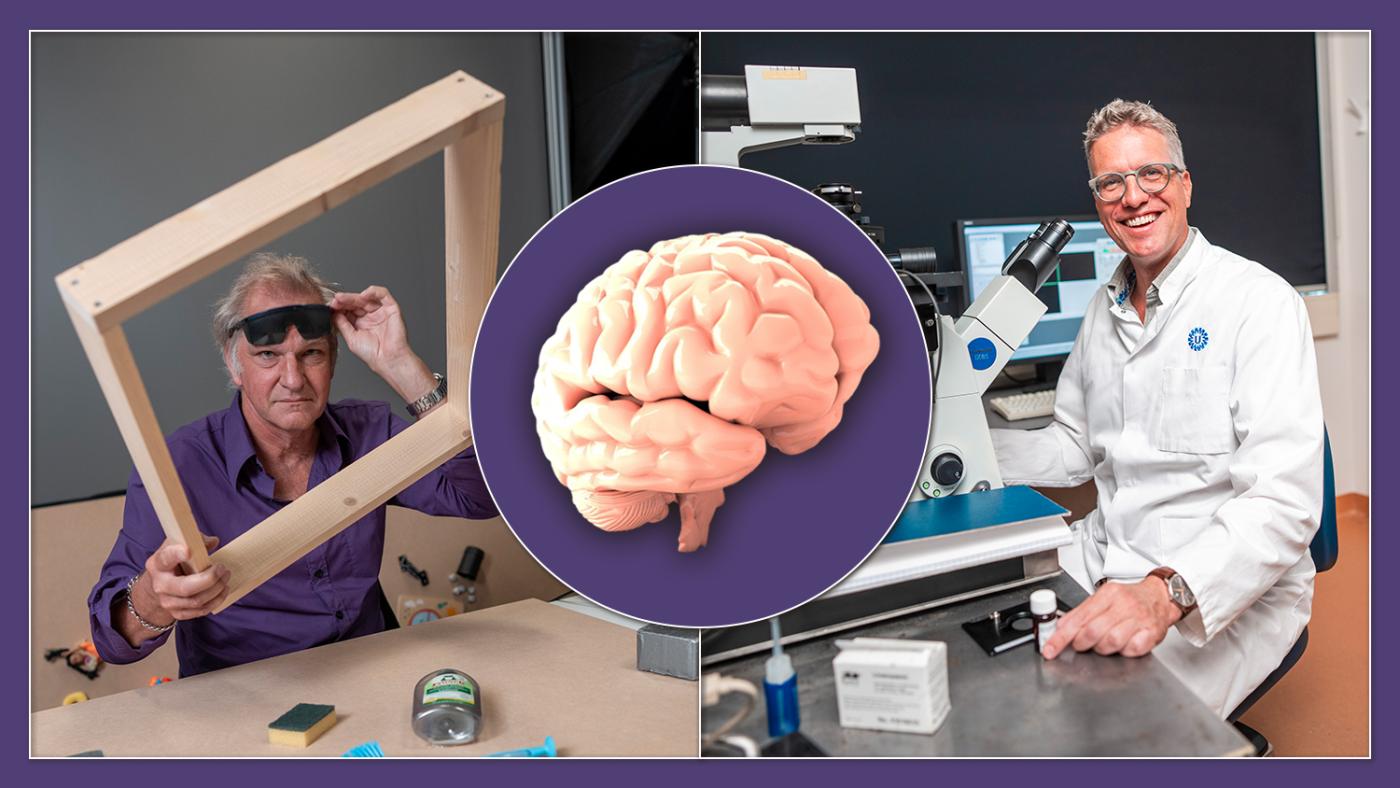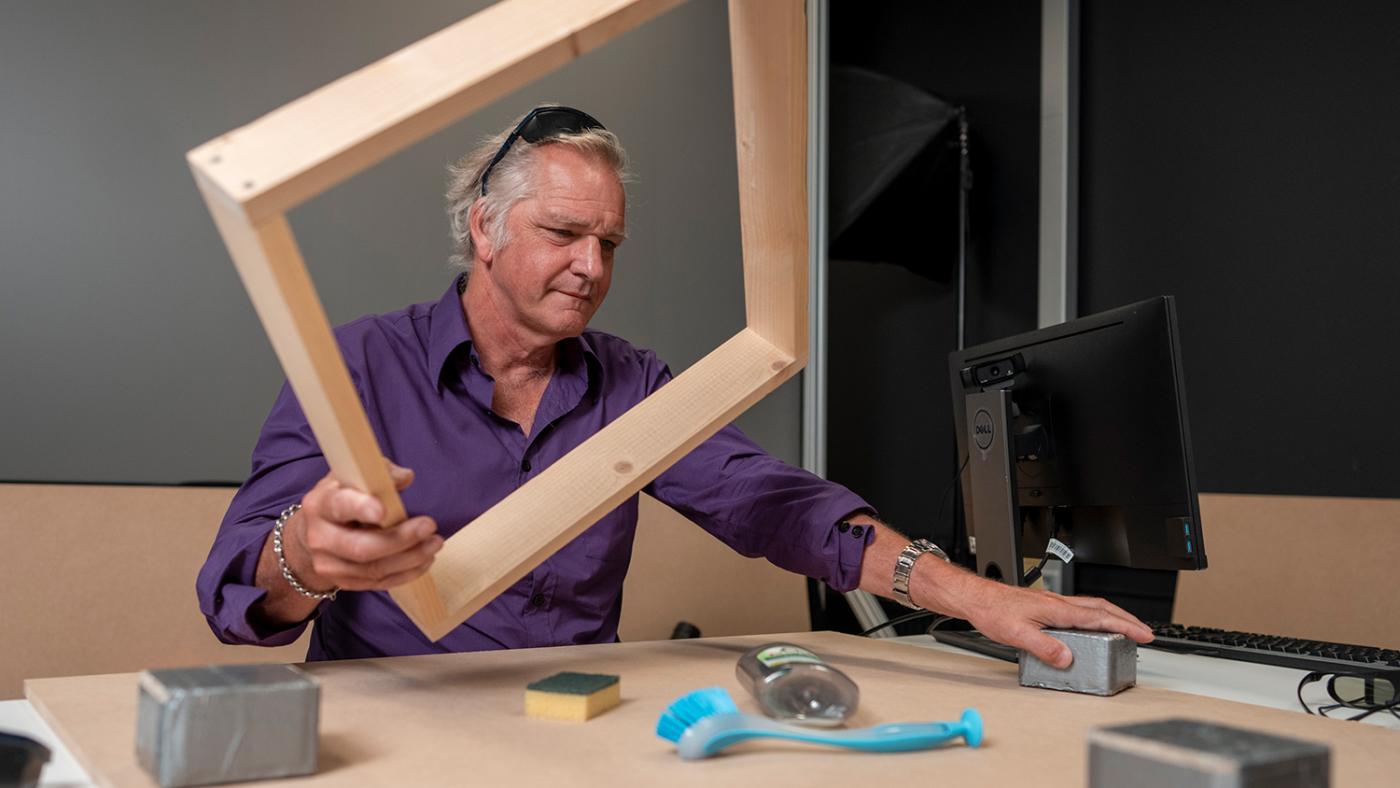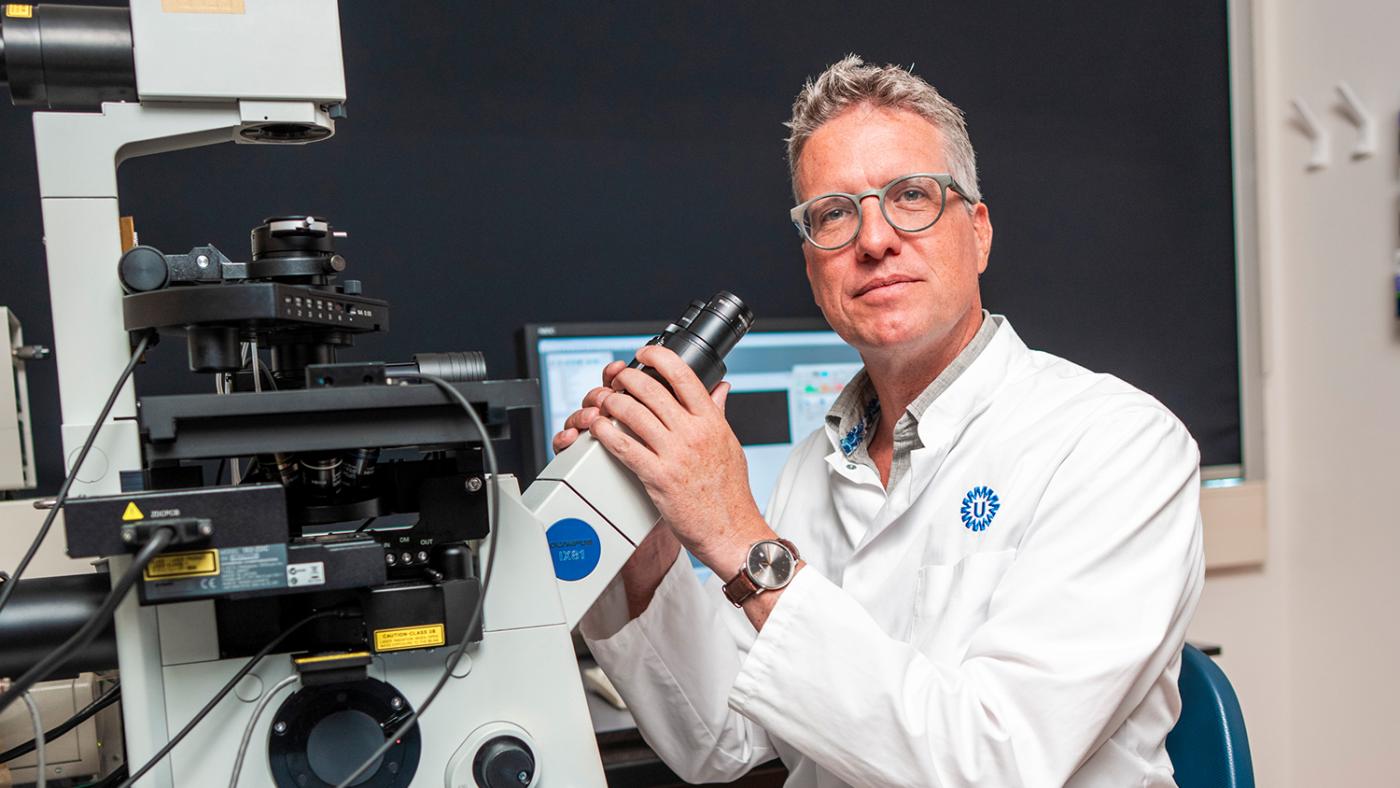Keep your sense of wonder
Lifelong learning can be a buffer against ageing

As people age, certain things become more difficult, such as ordering a drink online or using a QR code. To some, such things can be tricky to master. Others have a harder time remembering names or appointments. However, the idea that ageing means decline is simply untrue, according to UU brain scientists Jeroen Pasterkamp and Albert Postma.
Brain decline can be prevented by staying active and continually learning new things. "Brain connections are strengthened by external input, such as reading or talking to others; things that make you think. You must keep challenging your brain; otherwise, brain connections will be lost. Use it or lose it," says Jeroen Pasterkamp, a professor of Translational Neuroscience who also serves as the Scientific Director at the Brain Centre of UMC Utrecht and as Director of the Mind Facility at Utrecht University and UMCU.
Almost all brain cells are already present at birth, he explains. Our brains sustain damage throughout our lives. Sometimes, cell processes can go wrong and cannot be repaired. Brain cells do not divide, so it's impossible to add new ones. "All kinds of processes accumulate, causing you to actually use up your brain cells. This leads nerve cells to function less effectively and reduces signal transmission between cells."

Albert Postma. Photo: Ivar Pel
Pasterkamp investigates how the brain and neural pathways form and develop. "At the molecular and cellular level, we see that people develop plaques, protein deposits or all kinds of structural changes in the brain as they age. The brain sometimes even shrinks a little as people get older."
This decline in brain function is not immediately noticeable. People can compensate for ageing by drawing on their previously acquired knowledge and experiences. "For example, you are better than a 10-year-old at assessing situations and how to respond to them. You have also experienced more emotionally, which means you can make associations with previous events more quickly. In addition, your experience gives you a better understanding of how things work. You can still solve problems by using alternative strategies. That is our good fortune in later life."
Fit nuns
The Nun Study conducted in the United States in 1986 also shows that it is possible to compensate for ageing. The study followed 678 Catholic nuns. Scientists looked at the relationship between the nuns' mental activity during their lives and the signs of dementia in their brains after death. Although all the nuns are dead now, the research is still ongoing, and their brains are still being examined.
Sister Mary is an important test subject. She was a remarkable woman who remained active in her community and kept up with the news until old age. She achieved high cognitive test scores until shortly before her death, at the age of 101. After she passed away, the scientists found that her brain was full of protein deposits, indicating advanced Alzheimer's disease. How is it possible that Mary functioned well until her death, even though her brain showed signs of Alzheimer's?
According to the Alzheimer Centre Amsterdam, this is due to “cognitive reserve”, a person's ability to “compensate” for brain damage. "People with high cognitive reserve can delay the onset of symptoms and experience slower decline," according to the centre. This allows memories to last longer. People with a high level of education, above-average intelligence and a physically and cognitively active lifestyle generally have higher cognitive reserve and therefore experience fewer Alzheimer's symptoms, or experience them at a later age.

Jeroen Pasterkamp. Photo: Ivar Pel
You can still learn
According to Albert Postma, Professor of Clinical Neuropsychology and Head of the Memory & Space Lab at Utrecht University, cognitive reserve is "a somewhat elusive concept. Does someone have better cognition because of greater cognitive reserve, or greater reserve because of better cognition?"
Postma conducts research into spatial memory and orientation, including finding and losing one's way. “Our memory has a broad capacity. The general idea in neuropsychology is that there are separate memory capacities that process, retain and use information in their own way. They are located in different places in your brain.”
Typical forgetfulness, such as forgetting appointments or not knowing where you left your keys, relates to episodic memory. "This is the memory for personal events. To retrieve these memories, we must recall what happened and in what context: the place or time when the event took place or which people were present. Episodic memory deteriorates quite rapidly as we age. We also see this deterioration in diseases such as dementia."
Working memory or short-term memory also deteriorates slowly. "This is the memory that processes information in one or two minutes and is the focus of your attention. It is a kind of central and important conduit for later storage of information in long-term memory."
Semantic memory is resistant to ageing and can even improve in later life. This is a network of concepts, facts and general knowledge. Our vocabulary is also stored in a semantic lexicon. Postma: "Concepts do not exist in a vacuum, but are linked to each other. New knowledge can be learned more easily if you already have knowledge. You can integrate it into a network of existing schemas and scripts about how things work. The more of these you have, the easier it is to store new knowledge."
This means you can learn something new in old age by drawing on the knowledge acquired throughout your life. When we study, we are building and expanding semantic networks. Since these are generally good in older people, they too can learn new things. However, this applies to learning something for which you already have conceptual structures. If you want to learn something completely new, it gets more difficult later in life.
The importance of awe
To replenish your cognitive reserve, it is important to keep training your brain, as Pasterkamp said. The Brain Foundation recommends breaking your daily routine by doing things like cycling a different route to work, attending a lecture, visiting a museum or taking a course. The motto is to seek variety and challenge. Postma: "When reading a book, you use your imagination more than when watching a film. That's more cognitive training. Physical exercise also has a positive effect on the brain because it improves blood flow. You can benefit from team sports in which positioning is important. In addition to the physical element, you also train spatial skills. But all kinds of activities are good. The main thing is to stay active and keep doing different things. You can always learn something new. As long as you continue to be amazed by things and pay attention to them."

This is an article from DUB's Lang zullen we leren! (Long may ww learn!) magazine, which was made in collaboration with Utrecht University's Continuing Education programme. The magazine can be found in several buildings of the university but all the articles from the magazine are also available online. Over the next two months, DUB's website will feature several of those articles and stories, as well as publish a few additional online-only articles about continuing education. You can find all the articles related to the magazine here.
Comments
We appreciate relevant and respectful responses. Responding to DUB can be done by logging into the site. You can do so by creating a DUB account or by using your Solis ID. Comments that do not comply with our game rules will be deleted. Please read our response policy before responding.